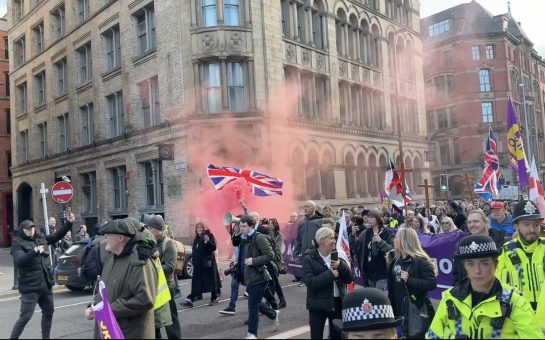Have you ever wondered what would happen if you were forced to break the law in extraordinary circumstances?
Most of us try to abide by the laws of the realm but extraordinary circumstances sometimes calls for extraordinary measures.
With this in mind, MM have partnered up with Olliers Solicitors, a leading criminal law firm based in Manchester, to offer invaluable insight to UK law.
Thanks to the new partnership, MM will now be able to shed some light on certain aspects of the law, and what wiggle room – if any – you have in certain situations.
To get your law questions answered by Olliers’ Legal Eagle, all you need to do is email your legal question to newsdesk (at) mancunianmatters.co.uk
To get things started, one reader has posed a particularly interesting conundrum that could affect any one of us at some stage in our lives.
————————————-
Dear Olliers solicitors and Mancunian Matters,
I have been wondering for a while about this so I would be very grateful if you could answer it for me!!
We all know the speed limit is not flexible and the police will not take into account any ‘factors’. But what if you were speeding to get someone to the hospital who was dying or bleeding to death in the back of your car? Would you get away with speeding then?
Thanks,
Paul
—————————————-
If the UK authorities were faced with this situation then there are a couple of potential outcomes.
Officers have discretion in whether or not to bring a speeding charge and we often hear of friends/family being stopped for speeding but not being given any formal penalty.
Many having just been given a warning or maybe offered a speed awareness course as an alternative to prosecution.
Under the circumstances, some may argue that the officer should be ‘more reasonable’ and possibly just give a warning however various circumstances (such as the danger posed to other road users – and indeed the driver’s own passengers) should be considered.
If a formal charge of speeding is brought then a driver would likely face disqualification for driving so far over the speed limit should he plead guilty or is found guilty of speeding.
That said, there may be a possible argument to avoid the usual penalty recommended in the sentencing guidelines.
The UK legal system has provisions for ‘special reasons’ which may exist in certain cases.
Regardless of the charge, a special reason is essentially a unique circumstance that is relevant to the case and directly relates to the commission of the offence. If a special reason is accepted by the Court then it allows them to deter from the normal statutory penalties.
There are strict criteria for something to amount to a special reason that are:
1. The reason must be a mitigating or extenuating circumstance;
2. It must not amount to a defence to the allegation;
3. It must be directly connected to the offence itself; and
4. It must be something that the court should properly consider when imposing punishment.
It is important to understand exactly how a special reason can affect your case. If special reasons are accepted by the court it does NOT mean that you avoid a conviction (you will still be found guilty) but it may allow you to escape the usual penalty.
For example, a driver may avoid the mandatory 12 month disqualification for drink driving if a special reason is accepted.
He may receive a lower disqualification or (in most cases), no disqualification at all. However the actual conviction will still be recorded against him,
The most common special reasons arguments are:
1. An emergency situation;
2. Shortness of distance driven;
3. Spiked/Laced drinks.
To avoid everybody running a special reasons argument to try and avoid a penalty, the courts take an extremely strict view on them to ensure that a genuine special reason actually exists.
Any argument will be scrutinised and the court will often look for any possible alternative to committing an offence that the driver may have adopted.
For example, if the special reasons argument focuses on an emergency situation such as that contained in the article, the court will want to know the following:
1. The nature of the emergency;
2. The seriousness of the emergency;
3. Why emergency services could not have been called as opposed to committing an offence;
4. Whether the commission of the offence was actually beneficial or assisted in some way (would it have been detrimental waiting for an ambulance or calling a taxi?);
5. The risk presented to other road users; and
6. The distance driven.
This list is not exhaustive but hopefully will help you understand the position that the court will adopt when listening to a special reasons argument.
In the example case the main things that would go against a special reasons argument are that the excessive speed would have posed a danger to other road users and it was over a significant distance.
You can find more about Olliers Solicitors here.
Main image courtesy of NWMotorway Police, with thanks.



